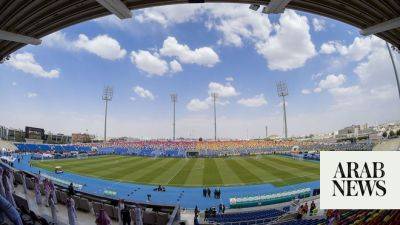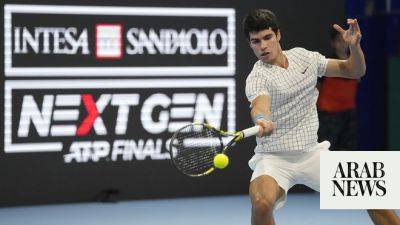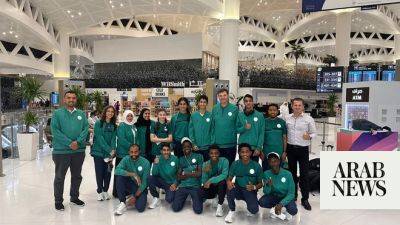Saudi Arabia’s progress offers hope for women’s football in the Middle East
The ongoing FIFA Women’s World Cup in Australia and New Zealand has been historic for several reasons.
Debut victories, record crowds and milestone goals have marked a thrilling group stage that saw the likes of Brazil, Germany, Canada and Italy fall by the wayside, while emerging nations including Morocco, South Africa and Jamaica have stolen the show.
The Moroccans won the hearts of fans around the world after their miraculous qualification for the last 16 with back-to-back victories over South Korea and Colombia.
The scenes in Perth of the players and coaches erupting in wild, tearful celebration as they progressed to face France, went viral around the world, touching even the most hardened football fans.
Their success is testament to many years of investment and development from their federation, and stands as the ultimate blueprint for the rest of the Middle East and North Africa region.
While Morocco made history as the first Arab nation to play at the tournament, which was first held in 1991, it is notable that no country from the Middle East has qualified for the global showpiece — and that does not appear likely to change any time soon.
The development of women’s football in the region remains frustratingly slow.
In contrast to nations that are progressing, like Saudi Arabia, which has significantly increased its investment in recent years, there countries like Qatar and the UAE where progress appears almost nonexistent.
Others simply do not have the resources.
“Unfortunately, from an economic point of view, we’re still behind,” former Lebanon international Assile Toufaily told Arab News.
“We still have this problem of lack of funding, lack of sponsorship opportunities, lack of media representation,






